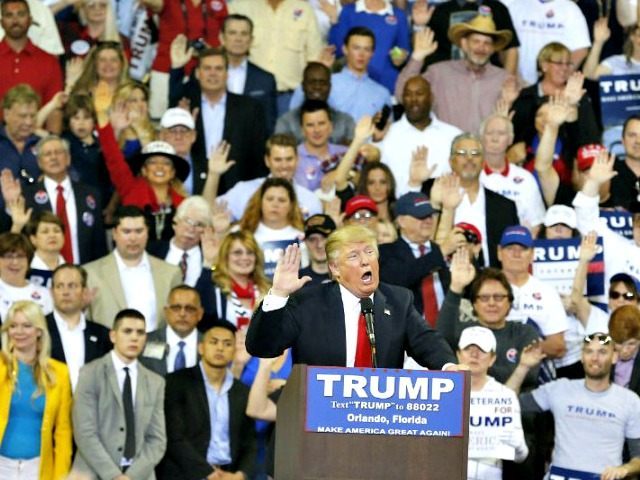Donald Trump has emerged as the likely GOP nominee because on the great forces transforming America—globalization and immigration—establishment Republican leaders have turned a blind eye to the legitimate complaints of less-educated, often-rural white males who are amassing to Donald Trump.
The internet, jet travel, and efficient ocean transportation make the production of goods and services a worldwide phenomenon but put ordinary American workers in direct competition with the most poorly paid and exploited souls on the planet.
President Obama can beat his breast about inequality and sign all the executive orders he likes to mandate higher wages for workers without globally valuable skills. However, if we pay those folks too much, their jobs move to China and elsewhere in Asia.
How we manage commerce matters too, but trade agreements, championed by both Republican and Democratic presidents, have done a lousy job of defending American interests. Our markets are wide open to foreign products, while China and other nations subsidize local production, manipulate currencies and throw up huge barriers to U.S. exports.
Seven million men between the ages of 25 and 54 have no job and are too discouraged to seek employment. Along with millions of others stuck at barely subsistence wages, they are fertile ground for a candidate who promises to win at trade and make America great again.
The combination of lax immigration enforcement and affirmative action sorely disadvantage less-well-educated white males in the scramble for what decent paying jobs remain. And coupled with the declining fertility of white females—and a feminist movement that threatens women with the fires of hell if they fail to show preference for other women when they buy products, hire workers, and vote—white men can look forward to minority status and systemic discrimination.
GOP leaders, much like President Obama and his heir apparent Hillary Clinton, dismiss these men’s appeals for fairness as the musings of Neanderthals, only further driving them to embrace Donald Trump.
Still, his coronation at the GOP convention in July is far from assured. He needs to win 57 percent of delegates in the states yet to be contested, and with those more concentrated in the West and Northeast, Ted Cruz and John Kasich look likely to deny him a first vote majority.
Kasich epitomizes the Republican establishment—temperate, moderate, and boring. He polls best among better-educated, urban Republicans repelled by Trump’s vitriolic remarks, but so far he has only managed one major primary victory—his home state of Ohio.
In contrast, Ted Cruz’s support spans the entire spectrum—rural, urban, and all educational levels—but for many reasons, good and bad, he is reviled almost as much by the Republican establishment as Trump.
Even under the best of assumptions—a very large white turnout in November and that Trump manages, despite his racist remarks, to win at least some black and Hispanic votes—an analysis by University of California professor of political science Loren Collingwood indicates Trump faces terribly long odds against Hillary Clinton.
Even if he manages to capture Florida and as expected does well in the South, the notion that Trump could somehow replace swing states with growing minority populations like Virginia and Colorado by winning rust belt states like Pennsylvania and Wisconsin is a fanciful delusion.
Should the GOP establishment make the case in Cleveland that Trump is headed for disaster in November, it will likely hoist Kasich on a chaotic convention after the first ballot.
Cruz has performed better in the primaries and offers the best prospects for beating Clinton, but Kasich is assembling an impressive group of GOP operatives to engineer a convention coup d’etat.
If he succeeds, the Ohio Governor—running on the usual GOP platform of tax cuts, business-friendly deregulation, and moderation on trade, immigration, and political correctness—will be routed by Hillary Clinton.
Peter Morici is an economist and business professor at the University of Maryland, and a national columnist. He tweets @pmorici1.

COMMENTS
Please let us know if you're having issues with commenting.